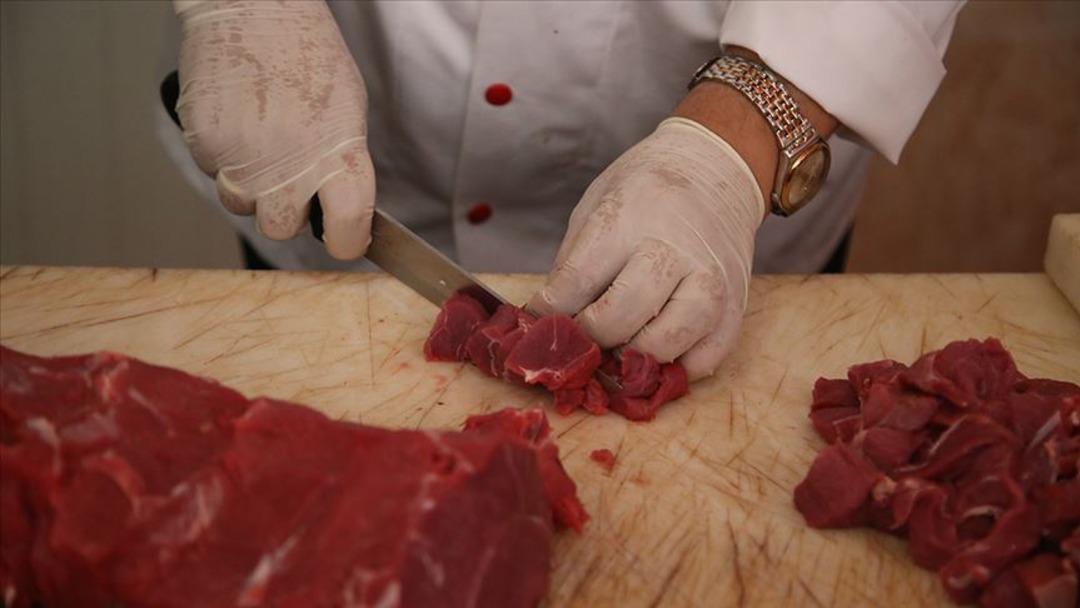Don't let holiday meat be a danger! Meat that is not cooked properly causes serious stomach and intestinal problems! How long should cuts of meat stay in the deep freezer?

Nutrition and Diet Expert Ayşegül Akkaya Erden reminded us of the rules required for healthy consumption of red meat and preventing stomach and intestinal problems during the holiday as the Feast of Sacrifice approaches. Underlining that meat should be obtained from sacrificial animals that have undergone veterinary control, prepared with appropriate cooking methods and consumed in sufficient portions, Dietician Erden said that serving the meat with lemon greens to facilitate digestion is also a healthy approach.

Dietician Erden, who emphasized that methods that will preserve vitamin and mineral values should be applied when cooking sacrificial meat, said, "In terms of vitamin and nutritional value, it would be healthier to cook meat by boiling and grilling. Frying should be avoided. Cooking meat with vegetables rather than on its own, consuming it with grilled vegetables or salads is a healthy approach in terms of providing nutritional diversity and making the meat easy to digest. Since freshly slaughtered sacrificial meat is hard, especially people with gastrointestinal problems should keep this meat in the refrigerator for a few days before consuming it."

Dietician Erden, who drew attention to the serious risks of congenital toxoplasmosis during pregnancy, warned, "Consuming undercooked or raw meat can cause the toxoplasma gondii parasite to pass to humans and cause permanent health problems in the unborn baby." Stating that toxoplasmosis can cause damage to the brain, eyes and vital organs of the baby, she emphasized that the meat eaten by pregnant women should be cooked very well. Dietician Erden, who mentioned that one of the most important situations to be careful about during the holiday is pinworm infection, said, "Intestinal worms, which are transmitted through undercooked meat and especially affect children, can cause serious gastrointestinal problems. Pinworms are transmitted through the mouth or feces and settle in the intestines, causing symptoms such as diarrhea, abdominal pain, loss of appetite, and nighttime drooling. Therefore, healthy cooking methods such as boiling, baking, and grilling should be preferred. It is critical that meats are prepared for appropriate periods of time and that the inside is completely cooked."
"BACTERIA PRODUCT IN WAITING MEAT"Dietician Erden stated that bacteria can easily grow if the sacrificial meat is left outside for a long time until it is delivered to the house, and said, "Hygienic storage of meat is of critical importance in terms of preventing poisoning. For this reason, the meat should be delivered to the house from the slaughterhouse as soon as possible and should be frozen after resting in the refrigerator for 4-5 hours. Storing the meat by cutting it into pieces in a dry and clean manner prevents bacterial growth. Freezing it by writing the date after removing the moisture with a sterile paper towel is one of the healthiest methods."

Dietician Erden, who stated that the storage period varies depending on the size of the meat and whether it has been processed, said, "Pieces of meat can be stored in the deep freezer for 6 to 12 months, offal for 2 to 3 months, and ground meat for 3 to 4 months. Chicken and turkey meat should not exceed 3 months. Processed products such as sucuk and sausage should be stored for 1 to 2 months, and cooked meat for 2 to 3 months. In addition, meat taken out of the freezer should not be frozen again."

Dietician Erden, who listed the things to consider for a healthy digestive system during Eid al-Adha, said, "Start the day with a light breakfast, eat frequently but little, and try not to stay hungry for more than 2-3 hours; this will be beneficial for your metabolic health. Hot weather and heavy protein consumption can cause fluid loss in the body, so be sure to drink 2-3 liters of water daily. Be careful not to over-consume caffeinated beverages such as tea and coffee. Eat your meals slowly and chew them thoroughly, this will not strain the stomach. Consume lemon salads with meat, because this increases the absorption of iron in meat. Avoid pastries, desserts, and foods containing excessive sugar and fat; instead, increase your vegetable and fruit consumption. Excessive meat, dessert, and chocolate consumption during the holiday can cause problems such as heartburn, indigestion, and gas, so be careful with portion control. For those with cardiovascular, diabetic, and blood pressure problems, prefer lean or low-fat meats and be especially careful with your portions."

Dietician Erden, who points out that one of the most basic rules of a healthy life is physical activity, said, "Light walks taken during the holiday both facilitate digestion and prevent the expected weight gain. Spending the Eid al-Adha with a healthy, balanced and conscious diet both protects the health of the gastrointestinal tract and creates a protective effect against chronic diseases in the long term."
(İHA) This content was published by Sedef Karatay
mynet





